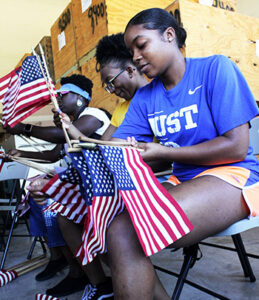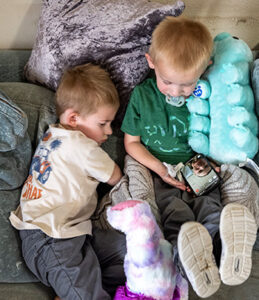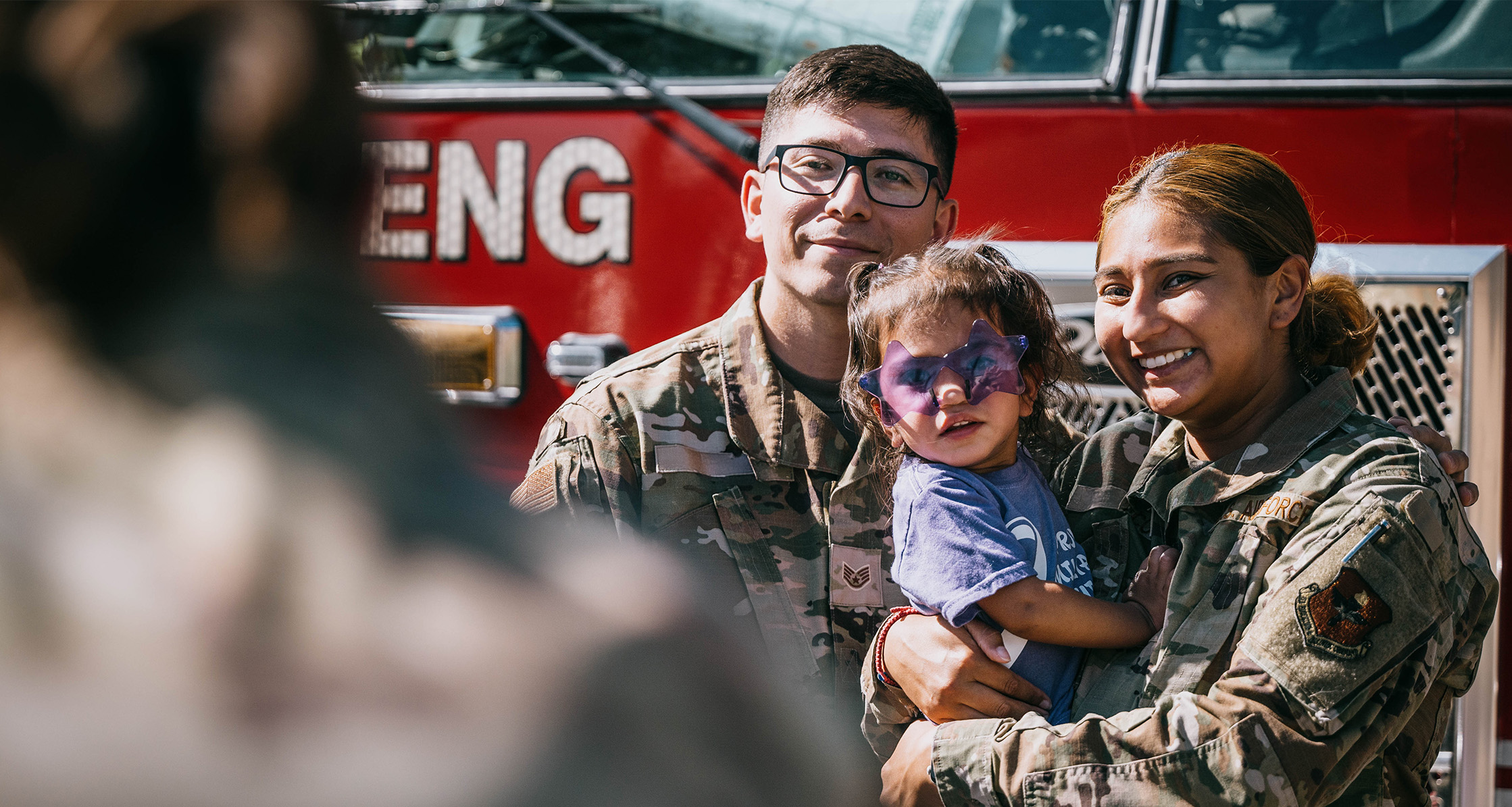With the right strategies and support, you and your children can navigate all of the twists and turns military life throws your way!
Military children are often celebrated for their strength and resilience, but they often face unique stressors related to military life, including frequent relocations, school disruptions, and deployments.
Due to this, military children can be at risk for mental and behavioral health problems, including anxiety, mood disorders, and substance use disorders. With more than 1.6 million military children in the United States, it’s important to understand the unique challenges they face, how these challenges may impact their mental health, and what strategies and resources can help them navigate difficult times.
What Mental Stress Looks Like in Military Children
As children navigate the challenges of military life, they may find their feelings difficult to express or even understand. They may not want to bother you with their problems, or they may not realize why they’re acting or behaving in certain ways.
Signs of stress will look different in children of different ages. For example, a toddler may sulk or throw a tantrum. A preschooler may develop separation anxiety. A school-age child or teenager may perform poorly in school or engage in risky behaviors. Common signs of stress in military children may include:
- Irritability, moodiness, anger
- Withdrawal from activities they used to enjoy
- Separation anxiety or clinginess
- Bouts of crying, tearfulness, or sadness
- Changes in sleep patterns, either sleeping too much or too little
- Fatigue or low energy
- Dramatic reactions to minor situations, like stubbing a toe
- Eating too little or too much
- Physical symptoms such as stomachaches and headaches
- Attention-seeking behavior or unhealthy methods for coping
- Defiance of authority, or changes in grades or school performance
How Can I Help My Child Navigate Stressful Times?
According to the U.S. Army, there are several ways you can help your children navigate stressful times.
- Encourage your children to express their feelings. Make talking about mental health a normal action for your children. Don’t make them feel like they’re adding to your stress if they share their feelings. Instead, encourage them to share how they’re feeling and keep communication open and honest.
- Communicate with other adults. Your children probably spend a lot of time around other people, whether it’s at school, day care, or after-school activities. Communicate with your children’s teachers, coaches, or anyone else who may be connected to them and have an idea about how they’re doing. Your child may be expressing feelings or behaviors to them that they aren’t showing you at home.
- Manage your own stress. Children often look to their parents to learn how to work through challenging times. Find positive ways to manage your own stress and share with your children what works for you. For example, ask your child to come on a walk and share how exercise helps to clear your mind. Ask your child to do a yoga or deep breathing activity with you and explain how it relaxes you when you’re worried. The more tools your children have to cope with stress, the better.
- Get them involved.
 Just like adults, kids need interaction with others and opportunities to enjoy activities they love. During difficult times, like a relocation or deployment, make sure they have healthy and fun outlets for their stress, such as sports, hobbies, time with friends, or other fun activities.
Just like adults, kids need interaction with others and opportunities to enjoy activities they love. During difficult times, like a relocation or deployment, make sure they have healthy and fun outlets for their stress, such as sports, hobbies, time with friends, or other fun activities. - Keep things consistent. Military life can be unpredictable. Knowing what to expect can make kids feel safe and comforted during tough times. For example, even if you’re exhausted after a move, keep your Friday night dinner and a movie ritual. Maintain the same bedtime routine even when a parent is deployed.
- Treat your own mental health conditions. If you’re suffering from your own untreated mental health challenges, such as post-traumatic stress disorder, depression, anger, or substance abuse, it can impact your children’s mental health and your ability to parent effectively. Treating your mental health conditions and talking about what you’re going through can help your children understand more about how to navigate their own struggles and ask for help.
- Seek support. Parenting is hard in normal circumstances, and military life can make it even more difficult. Work with a mental health professional, talk to other military families, and tap into the support designed to help you and your family thrive. Check out the resources below to get started.
What Resources Are Available to Help?
TRICARE–Your health care plan offers a wide range of benefits to help you and your family stay strong and healthy throughout your time in the military, including preventive care, mental health support, and more.
Military OneSource has a parenting section full of guidance on making moves easier for your children, talking to teens about difficult topics, and more. Military OneSource also provides free, confidential counseling for youth ages 13-17 and family counseling sessions for children ages 6-12 with a parent present.
The Military and Family Life Counseling Program–This program provides free, confidential counseling to Service members and their families on or near installations. Children and youth behavioral military and family life counselors (CYB-MFLCs) can provide support for issues such as low self-esteem, behavioral issues, anger management, and difficult life situations like divorce, grief, and deployment. Use this locator tool to find contact information for your nearest CYB-MFLC.
Sesame Street for Military Families–Find information, videos, and games to help your young children deal with a range of military life challenges, including deployments, homecomings, and much more.
Boys & Girls Clubs of America–The Boys & Girls Clubs of America offer a wide variety of programming in sports, education, the arts, leadership development, community service, and more. Use their locator tool to find a club near you.
4-H–4-H provides programs and resources for children and youth, including summer camps, 4-H clubs, and an array of programming in subjects such as healthy living, public speaking, and more. Learn about the 4-H Military Partnership and how it is helping military youth thrive.
With the right strategies and support, you and your children can navigate all of the twists and turns military life throws your way!







